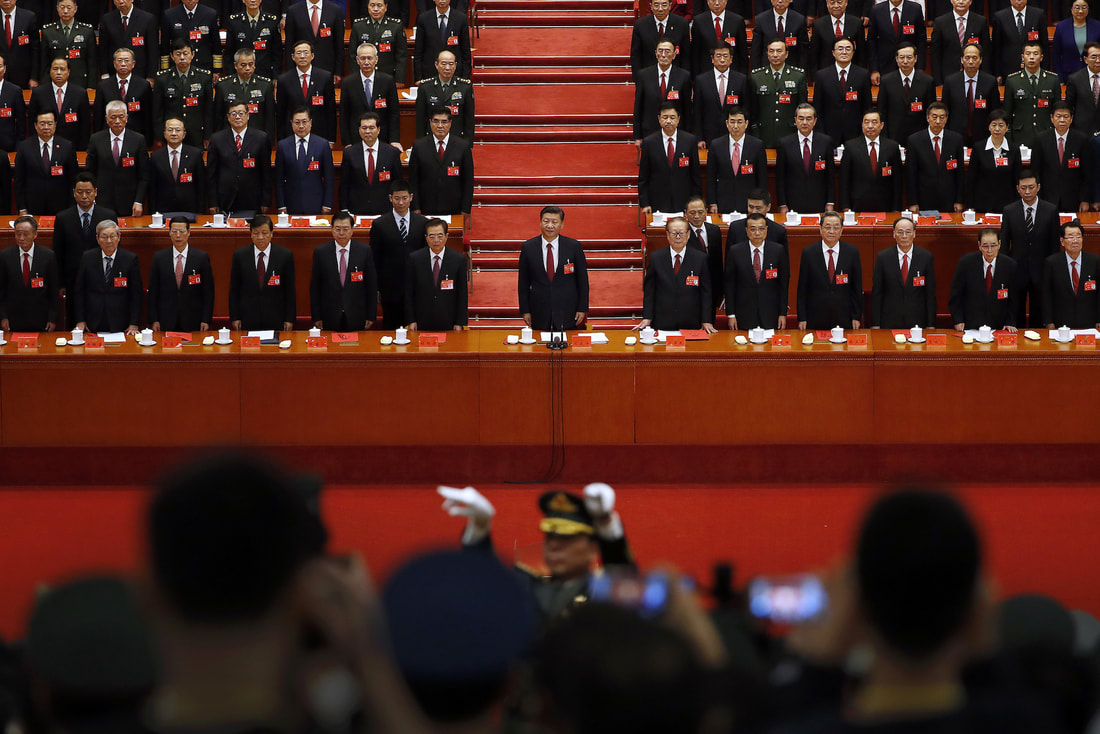|
The CCP changed its constitution, and media coverage used sensational language and selective quotes portraying President Xi and the party as amassing more power. However, only some outlets include specifics about what might change after this policy shift, which is more informative. Still, this data may be colored by the sensationalist tone throughout. Sensational language Here are examples of the dramatic, alarmist, or subjective language (in italic) that’s used to describe Xi’s policy change: “The historic decision bolsters President Xi’s political position as China’s most powerful leader in decades, and makes it harder for rivals to challenge him and his policies.” (The New York Times) “‘It’s the coronation of Emperor Xi,’ says Prof. Nick Bisley, an Asia expert at Australia’s La Trobe University. ‘He is without question the paramount leader and one with a remarkably ambitious vision for China.’” (TIME) “With President Xi Jinping’s contribution to the Chinese Communist Party’s ideological canon now enshrined in the party’s constitution, the nation can expect waves of expositions on their leader’s philosophy.” (The Wall Street Journal) “The party congress saw Xi cement his power ahead of a second five-year term and put him in the same company as the founder of modern China, Mao Zedong…” (Reuters) Not if, but how Ideally media would report the effects of the policy changes through neutral, fact-based explanations. Only a few outlets give any specifics on how Xi’s power would be “cemented.” For example, The New York Times reports that Xi Thought will likely now be taught in schools and in Chinese news and government agencies. The Wall Street Journal says that it will be added to school textbooks and state media essays. The other outlets don’t mention this. Additionally, the media says it’s hard to challenge Xi and that CCP “delegates are carefully chosen for loyalty,” but don’t say how or what that means. A video embedded in TIME’s article shows that the change to the constitution was adopted unanimously – meaning there were no “against” votes out of 2,300 delegates. Pointing to this fact would be more concrete and informative than using sensational language to imply the party is powerful. Granted, there are limitations to what the CCP discloses publicly, so not all information is available. However, media could also acknowledge this, and the possible implications, in a neutral way, without the drama. It’s useful for news outlets to show that the changes to the constitution may actually increase Xi’s and the party’s power. Yet, providing facts without sensationalism would be more informative and less alarmist. Comments are closed.
|
Jens Erik GouldJens is a political, business and entertainment writer and editor who has reported from a dozen countries for media outlets including The New York Times, National Public Radio and Bloomberg News Archives
February 2018
Categories
All
|

 RSS Feed
RSS Feed